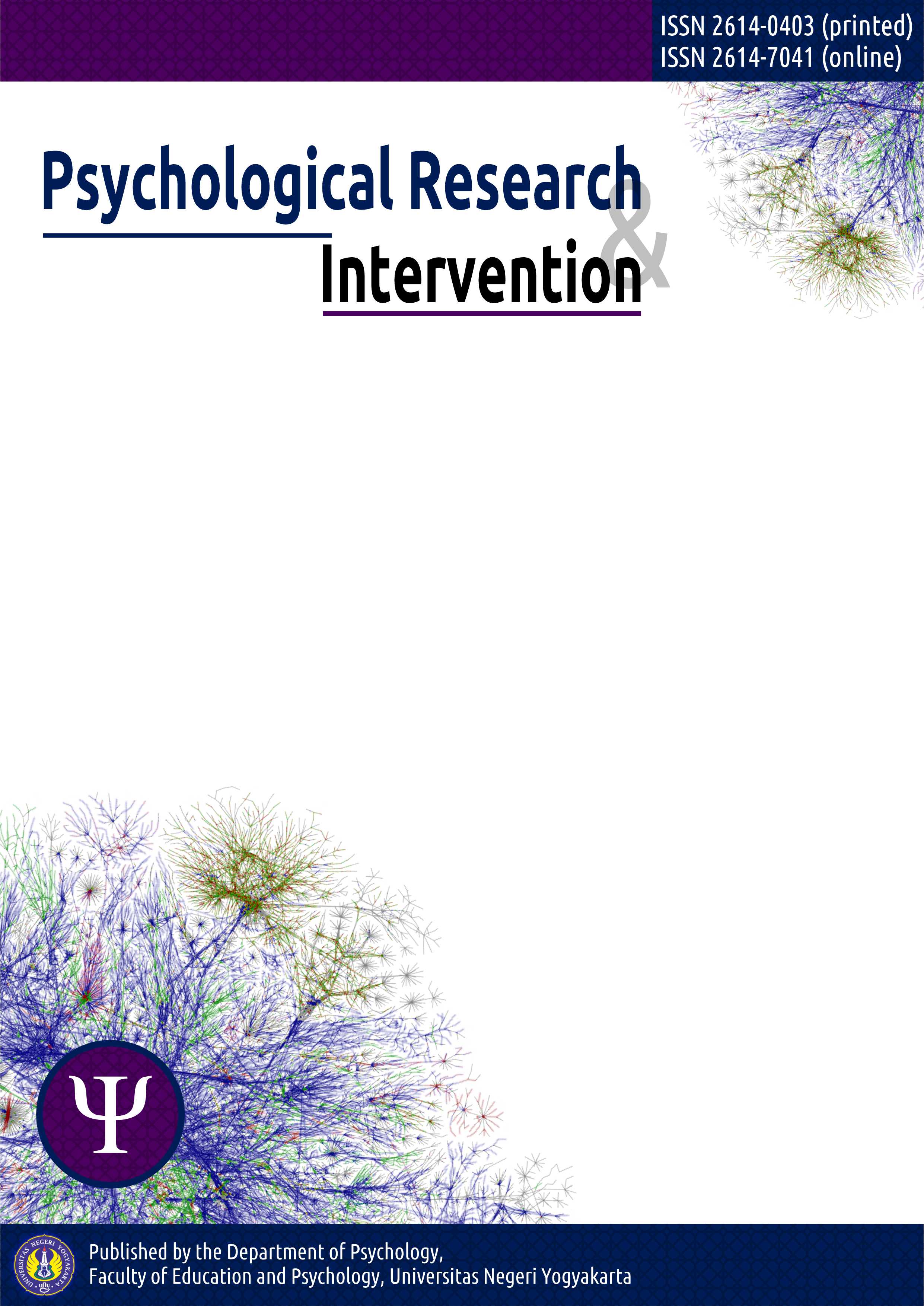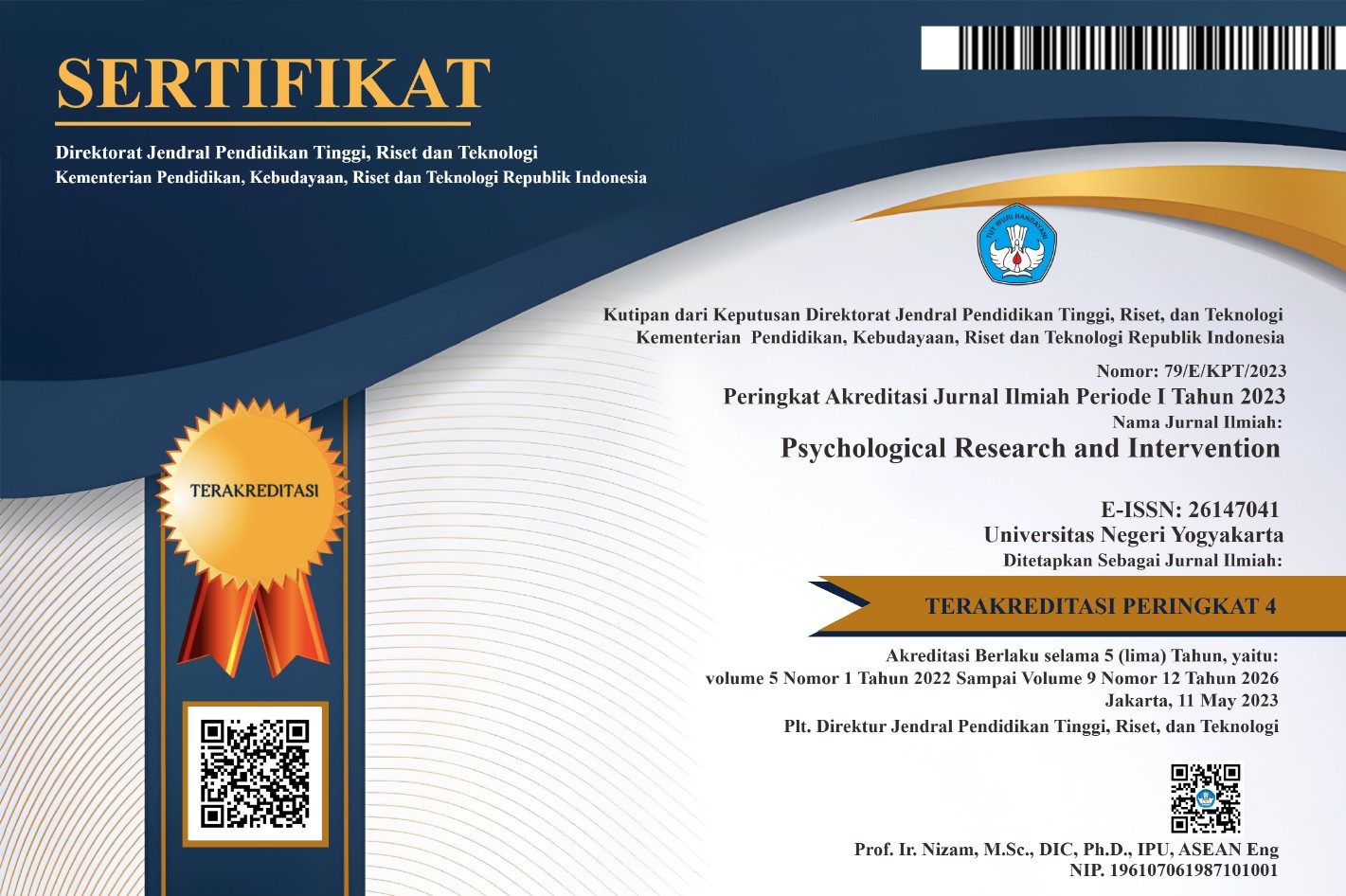Are you struggling? You need counselling: The growing trend of mental health contents on Instagram
DOI:
https://doi.org/10.21831/pri.v7i2.77168Abstract
Digital mental health platforms are increasingly emerging. These platforms provide psychological interventions and offer mental health-related content through their social media accounts on Instagram. While this content can raise awareness about mental health, it may also lead to misunderstandings and increase the risk of self-diagnosis. A recent study utilized content analysis to describe the characteristics of mental health-related content on Instagram. The results showed that the most dominant content category is romantic and family relationships, followed by life problems and psychological disorders, recovery and self-love, social media engagement, psychological knowledge, and finally, work and social relationships as the smallest category. Further investigation into science-based content is needed.References
Aryshinta, A. A., Fitria, A., Munadhil, A., & Muqsith, A. (2023). Komunikasi interpersonal dalam kesehatan mental followers akun instagram @Ibunda.Id. Jurnal Communicology, 11(1), 29-48. DOI:10.21009/COMMUNICOLOGY.031
Arindita, R., & Nasucha, M. (2023). The influence of community's instagram exposure and content towards mothers' attitude on mental health (study of followers of @haloibu.id. Jurnal Ultimacomm, 15 (1),
Balcombe, L., & De Leo, D. (2023). Evaluation of the Use of Digital Mental Health Platforms and Interventions: Scoping Review. In International Journal of Environmental Research and Public Health (Vol. 20, Issue 1). MDPI. https://doi.org/10.3390/ijerph20010362
Ben-Zeev, D. (2020). The digital mental health genie is out of the bottle. In Psychiatric Services. 71 (12), 1212–1213. American Psychiatric Association. https://doi.org/10.1176/appi.ps.202000306
Bucci, S., Schwannauer, M., & Berry, N. (2019). The digital revolution and its impact on mental health care. Psychology and Psychotherapy: Theory, Research and Practice, 92(2), 277–297. https://doi.org/10.1111/papt.12222
Gobel, S. A. M., Elnovani Lusiana, & Susanne Dida. (2023). Mental health promotion: Stop self-diagnosing through social media. Jurnal Promkes, 11(1), 71–81. https://doi.org/10.20473/jpk.v11.i1.2023.71-81
Ramadhanty, H. A., & Tsuroyya, T. (2023). 51026-Article Text-100416-1-10-20230126. Commercium, 6(2), 39–48.
Schrader, D. E. (2015). Constructivism and learning in the age of social media: Changing minds and learning communities. New Directions for Teaching and Learning, 2015(144), 23–35. https://doi.org/10.1002/tl.20160
Seabrook, E. M., & Nedeljkovic, M. (2021). The evolving landscape of digital mental health: implications for research and practice. In Clinical Psychologist (Vol. 25, Issue 2, pp. 121–123). Routledge. https://doi.org/10.1080/13284207.2021.1977157
Sosialita, T. D. (2023). Efektivitas Konseling Online pada Kesehatan Mental Remaja. Universitas Airlangga, 13(1), 69–80. https://doi.org/10.24127/gdn.v12i2.6424
Valkenburg, P. M. (2022). Theoretical Foundations of Social Media Uses and Effects. In Handbook of Adolescent Digital Media Use and Mental Health (pp. 39–60). Cambridge University Press. https://doi.org/10.1017/9781108976237.004
Valkenburg, P. M., Peter, J., & Walther, J. B. (2016). Media effects: Theory and research. Annual Review of Psychology, 67, 315–338. https://doi.org/10.1146/annurev-psych-122414-033608
Zhang, Y., & Wildemuth, B. M. (2009). Qualitative analysis of content. In B. Wildemuth (Ed.), Applications of social research methods to questions in information and library (pp. 308–319). Westport, CT: Libraries Unlimited.
Downloads
Published
Versions
- 26-05-2025 (2)
- 26-05-2025 (1)
How to Cite
Issue
Section
License
Copyright (c) 2025 Nadya Anjani Rismarini

This work is licensed under a Creative Commons Attribution 4.0 International License.
Author retains all copyright to their ariticle. All article will be published under Creative Commons Attribution 4.0 License (CC-BY-4.0)











